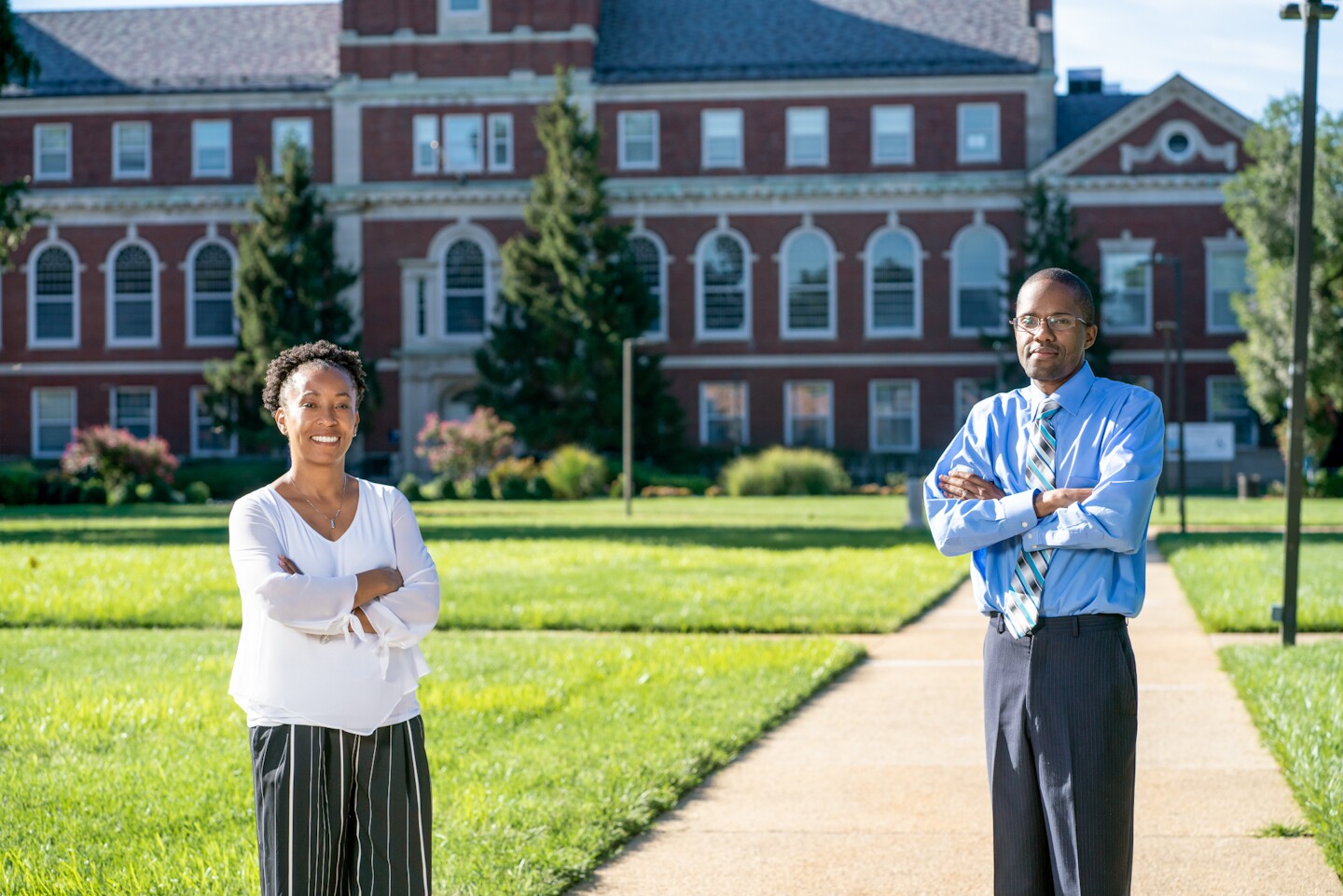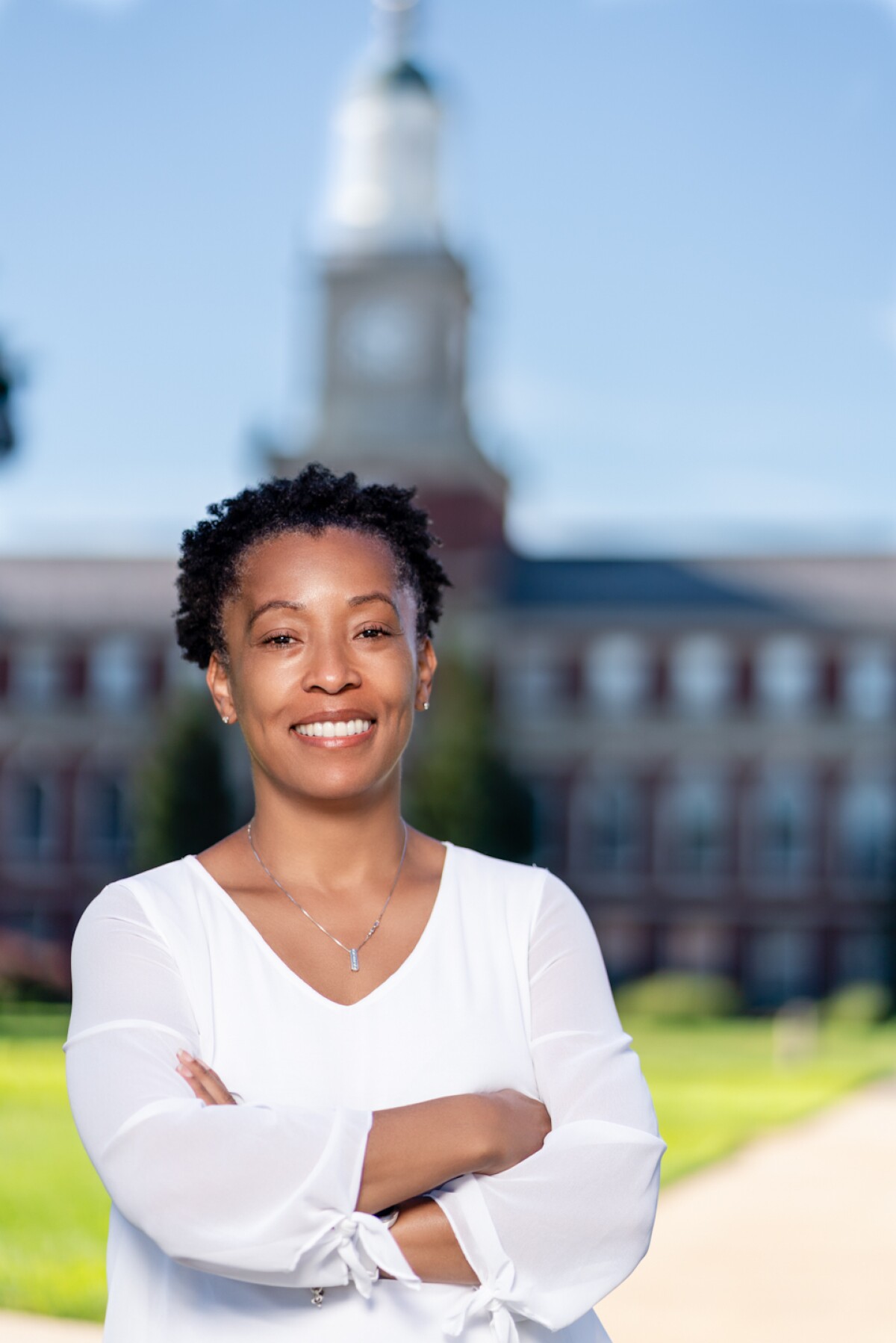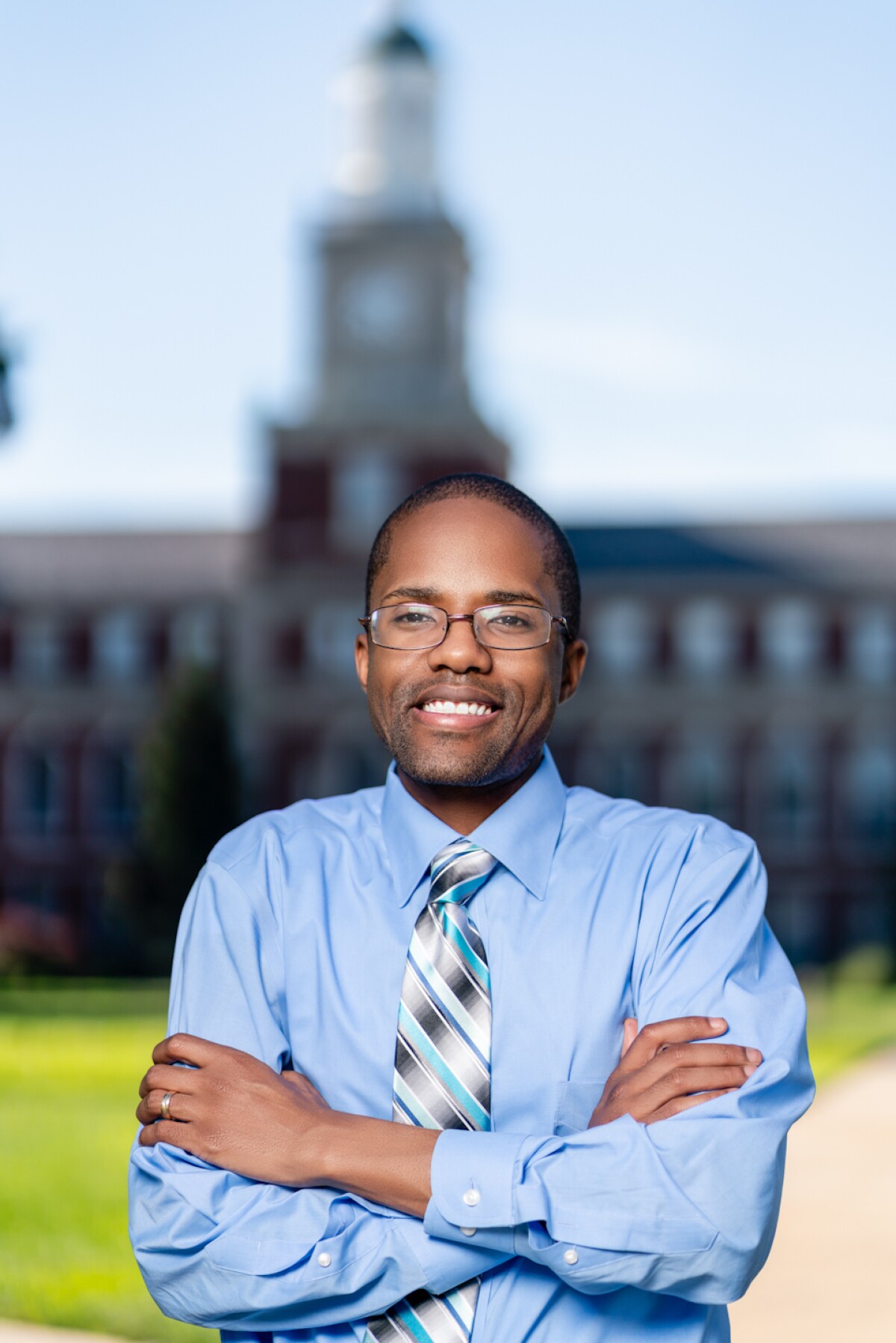Howard University recently announced that it will host the American Economic Association Summer Training and Scholarship Program (AEASP) “in support of increasing the pipeline of underrepresented minority economists.” The program will be hosted at Howard for the next five years, and Amazon is sponsoring next summer’s program. Amazon first began discussions with Howard University about sponsoring AEASP about two years ago. The program, which aims to prepare “talented undergraduates for doctoral programs in economics and related disciplines,” will celebrate its 50th anniversary in 2024 at Howard.
"The lack of diversity in economics becomes self-reinforcing"
Four economists from diverse backgrounds shared how economics can address its diversity problem and talked about how their lives have shaped their work as economists.
That Howard, an historically Black college and university (HBCU) which produces more Black economics undergrads than any other institution, is hosting AEASP for the first time serves as a reminder of the progress the economics profession still must make.
The Caucus of Black Economists (later called the National Economics Association) first began exploring the issues of underrepresentation of minorities within the economics field in 1969. More than 50 years later, the economics profession is still grappling with structural issues. In fact, last January’s AEA conference in San Diego featured a panel titled, “How Can Economics Solve Its Race Problem.”

Omari H. Swinton, the chair of Howard University’s Department of Economics, who is both an alumni and the current director of the AEA summer program, as well as the past president of the National Economics Association, has observed that, “The vast majority of institutions in the US have never had a Black economist on staff, and the vast majority of schools have never graduated a Black PhD economist.”
Rhonda Vonshay Sharpe, the founder and president of the Women's Institute for Science, Equity, and Race (WISER), which is also a partner in next summer’s AEASP program, authored a research paper in 2019 that found that from 1966 to 2015, “the number of undergraduate economics degrees conferred to Black women was stagnant, and there was a decrease in the number of doctorates conferred to Black men.”
So why does the economics field still have such a massive disparity in minority representation? What needs to happen for systemic progress to be made? Amazon Science sat down with Sharpe and Swinton to ask those questions, as well as why Howard hosting the summer program is so significant, and what advice they would give to students considering economics as a major or profession. We also talked with Amazon chief economist Pat Bajari to find out why Amazon is sponsoring next summer’s AEASP program, and why he thinks diversity within the economics profession is essential.

Why does economics still have such a significant diversity problem?
Omari H. Swinton: I don't know that economics, as a profession, has really agreed that there's a problem. I think that's one of the big issues—we’ll say there's a problem, but nothing ever changes. You oftentimes hear people say things like, ‘We want to increase diversity’ but don't actually make any changes. They just say that that's something that they want to do.
It’s not as if these things haven't been out there. There are people out there who have dedicated their lives to bringing these types of issues to the forefront. I go back to Sandy Darity as an example. If you read from his earlier work, he's talking about these issues. Gregory Price has chronicled which institutions have Black economists in them. Rhonda has been looking at these issues for years.
Whether the economics profession is really ready to change is the issue. There have been a lot of people who have been talking about these issues for years. Others have come out and mentioned these problems more recently, but they ignore the fact that people have been talking about issues of underrepresentation for years.

Rhonda Vonshay Sharpe: I narrow the problem down to be three things: 1) Economics has never defined what diversity means, and if you don't define it, you can't measure it, or hold folks accountable; 2) We don't have accurate data to track progress. We need to collect data that can be disaggregated by characteristics that have been used to limit participation in the profession. For example, when you talk about women, that usually means white women, and when we talk in terms of race, then you're really talking about men, and both of those descriptors are biased; and 3) As Omari said, there's enormous erasure happening. People have been doing this a long time, yet newcomers who have recently gotten tenure suddenly feel bad. They are handed a mic as if they are now the authorities. They don’t bother to understand whose shoulders they're standing on.
What needs to happen to address this problem? What role can academic institutions and companies like Amazon play?
Sharpe: I don't think the answer is to hire more Black economists. I really don't. And here is why: Because I think that when people say, ‘hire more Black economists’, people do just that, they hire Black economists. They do not think about whether or not those Black economists are bringing lived experiences that are going to help you craft policies to better interact with your customers.
One of the things I've been saying to folks recently is we need to talk more about structural classism and the ways in which we treat folks who are poor. So, it's not just about hiring Black economists, it's not about hiring Hispanic economists. It's about hiring folks who have lived experience in the US that will get at the inequality and related issues. That's not going to be solved just by hiring an economist because they are non-white.

Swinton: If you say you want to diversify the profession, then stop looking at things that are not really problems. For example, there's not really a pipeline problem. You can ask almost any economics professor who teaches Principles of Economics, and most will tell you that is probably one of the worst classes to use if you want somebody to be interested in economics as a profession. But it really hasn't changed in years.
One change that we're making in the summer program is the experiential internship, or experiential learning. We’re going to place students with think tanks and corporations to actually see what an economist outside of the academy does. Everybody that gets a PhD in economics isn't going to be able to get a job as a professor. What does it look like to be an economist at Amazon? What does it look like to be an economist at the Census Bureau or at Brookings? Those are entirely different experiences. We’re trying to partner with as many different organizations as possible.
Hopefully we'll see change at those institutions, because students will come to the summer program, have that experience, and want to go back to those institutions. Rather than wanting to be a professor, they will, for example, say, ‘I want to be an economist at the Census Bureau, because I believe this research is important.’ It’s important for organizations, public and private, to be available to students, so they can see the type of experiences they can have if they work for you.

Pat Bajari: As an economist, I have always thought of this is in terms of diminishing returns. If you always have the same type of viewpoint, and keep hiring replicas of that viewpoint, the returns you get from that eventually decrease. Having different viewpoints allows you to do better work. And because we serve a large and diverse base of customers, we have a large and diverse base of problems. We want to take a leading role in supporting a new generation of economists from underrepresented minorities—it is not only the right thing to do, but it will also help bring strong and diverse voices that will create an even more inclusive customer experience.
When individuals come from different backgrounds, they bring different perspectives to the table. You do better work when you have different perspectives.
Swinton: One thing organizations can do is find programs that are actually successful at achieving the types of goals they’re pursuing. For example, some of the research done by Becker et al. shows that about 20 percent of Blacks that have PhDs in economics have attended the AEASP program. By helping support Howard in hosting AEASP in this first year, Amazon is doing that. Without Amazon’s support, Howard wouldn't be able to host the AEA summer program at all. We certainly hope others will follow Amazon’s lead.
What is the significance of the summer program coming to Howard?
Swinton: The summer program is extremely important in my path as an economist. My first cohort of economists were the people that I met through the summer program. Howard is the number one producer as an undergraduate feeder of Blacks who go on to get PhDs in economics. This is our mission and one of our goals as an institution and as a department, and I think the AEA summer program coming to Howard is important because this is what our program is designed to do: increase minority participation in the economics profession.
The National Economics Association summer program came out of Marcus Alexis’ mind as a program to help get minorities interested in economics. For the AEASP program to come to Howard at this point in time is a great honor. It’s an honor to be the first HBCU to host the summer program.
Sharpe: I'm excited to see a program that's going to be led by Blacks, which I think is incredibly important, as the program will celebrate 50 years while it's at Howard in 2024. It just feels full circle in terms of thinking about Marcus Alexis, who was a Black economist, and then having the program 50 years later be at an institution that is the number one producer of Black economists. That's incredibly exciting.
Finally, what advice would you give to someone considering whether to pursue a degree in economics? Why is economics such an important field?
Bajari: A lot of economics is understanding people's material wellbeing. Who has low wages? Who has high wages? If you take a given policy, whether that's central bank policy or interventions into labor markets, etcetera, these things deeply, deeply, deeply affect people's lives, people's material outcomes. What they can purchase and where they can live and where they can send their kids to school and so forth. It's an important set of questions, and they range from micro things about what happens to the individual, to macro things, such as how the whole world is evolving and changing in response to things like COVID-19.

If we change policy or somebody goes to college versus doesn't go to college, what are the implications of those economic variables? I know this is what attracted me to economics. As a young person, growing up pretty poor in rural Minnesota, I was interested in the world and how it worked. And I liked economics because it brought math and data and scientific formalism to those questions. That's not the only way you can look at those questions, or the only way you should look at them, but it’s one way that's highly useful.
Sharpe: For students pursuing a PhD in economics, my main advice is to pick a PhD program that's a good fit for you. Many students think that if you don't go to a top program, you can't have a successful career. That’s not true. I went to Claremont Graduate University, not highly ranked, but I had an amazing time as a graduate student. I loved it. My mentee when I was in graduate school was Olugbenga Ajilore who’s at CAP (Center for American Progress) now, who is a rock star right now in terms of being in the news and asking people to think about rural communities. He and I didn't go to top economics departments, but we went to places that were good fits for us, and that's incredibly important.
It's an honor to be included with such a distinguished group of colleagues. I must say that the constraint on 19 to recognize Juneteenth means very important black economists were left out: Samuel Myers Jr., @RhondaVSharpe, Gregory Price, Omari Swinton, @nina_EBanks, and more.
— Sandy Darity, Retweets do not mean endorsement. (@SandyDarity) June 20, 2020
Bajari: “Technology economics” is a booming field. The largest conference held by the National Association of Business Economists is now the tech economics conference. It’s larger than their annual conference now, because it's been an explosive area of job growth for young people. We are one of the larger private sector employers of economists. When you're in that role, you have an obligation to demonstrate leadership. We saw sponsorship of AEASP as an opportunity to expose young PhDs to this emerging field. I thought Howard was very thoughtful about their proposal, and I'm hoping AEASP can help us establish a pipeline of highly qualified candidates.
Swinton: I talk to students about this all the time. You want to make a change, and you want to be a policy maker? Be an economist. You want to go into business and work on Wall Street, make a lot of money? Be an economist. Economics is one of the most useful majors because it allows you the opportunity you to go out and do a wide variety of things based on the basic training you obtain.
Applications for the summer program are open and the deadline to apply is January 31, 2021. To apply, visit economics.howard.edu/aeasp. The program will be held May 27 to July 25, 2021, and be offered in Washington, D.C., contingent upon COVID-19 restrictions.


















